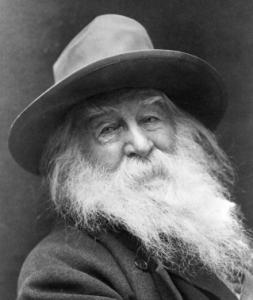I learned recently that Steve Jobs died this past week. This surprised me as I had just discovered his speech to the Standford grads of 2001, where he had spoken boldly on death and living. Battling cancer, he said, “No one wants to die.”
Death. Grief. We, the American culture, the empire, the watchdog, do not like to think on death. We do not want death near, nor anything that resembles the Reaper’s face. If death is far removed from our personal life, then we can safely be terrified by horror movies, media images of war, and fantastic tales. Bring death near, and we are lost, no where to turn with our grief or fear.
A friend recently sent me the article, “My Stillborn Child’s Life After Death.” A woman loses her child during labor and takes him home for six days before burying him. She shows him his room, sings to him, and says goodbye.
The common reaction is disgust – this woman did what? Taking a dead child home is not okay – the dead should be buried, and the woman must manage her loss.
My initial reaction to the article was a deep sensation of sadness. A woman loses her child. What is more tragic than this? When life should have been flourishing, she was given the dead.
However, I also had the feeling, This is strange.
But it is not strange. Only because of my culture, my socialization, did I assign judgement to this woman’s act. Casting away the social demands of what is right or wrong regarding grief, I see this woman in her ultimate strength. I do not believe America has the answers for true joy or sorrow. We are unable to express as our animal self needs, in situations of deep loss and grief. According to the social norm, we are supposed to adhere with a one day funeral and wake – this is the allowance for public grieving. I am more apt to agree with Rilke, in these few lines from his poem Requiem for a Friend:
Once, ritual lament would have been chanted;
women would have been paid to beat their breasts
and howl for you all night, when all is silent.
Where can we find such customs now? So many
have long since disappeared or been disowned.
That’s what you had to come for: to retrieve
the lament that we omitted. Can you hear me?
I would like to fling my voice out like a cloth
over the fragments of your death, and keep
pulling at it until it is torn to pieces,
and all my words would have to walk around
shivering, in the tatters of that voice;
if lament were enough.
Where can we find such customs now? American culture leaves no room for grief – we want death quickly put away, in a neat box, and we want grief the same. Keep it inside. Grief is not meant to be kept inside. People need to scream out in the night, and others need to hear. There is a need for grieving.
I am glad this woman found a way to deal with her grief, and cast off the judgements of her culture. I thought also of the old woman in Germany who kept her husband after he was embalmed, and continued life as normal after he was dead. She still cooked him meals, sat him in his favorite chair, talked to him.
Grief, that we cannot understand. Death, to whom we are unaccustomed.
A ex-philosophy professor recently minimally explained the idea of Freud’s superego to me. He said the superego is society’s demands on the individual. As civilization progresses (we “develop”), the demands on the individual become greater. Civilization comes at the cost of the individual’s happiness.
Cast off the waterlogged coats of our society, which keep us from knowing ourselves. We are not required to adhere to society’s norms – seize your happiness – make it your own! I will leave you with a wise word from Walt, my favorite Whitman:
Has any one supposed it lucky to be born?
I hasten to inform him or her it is just as lucky to die, and I know it.
I pass death with the dying and birth with the new-wash’d babe, and
am not contain’d between my hat and boots,
And peruse manifold objects, no two alike and every one good,
The earth good and the stars good, and their adjuncts all good.
– from Song of Myself
This post acknowledges Death, the greatest teacher.

